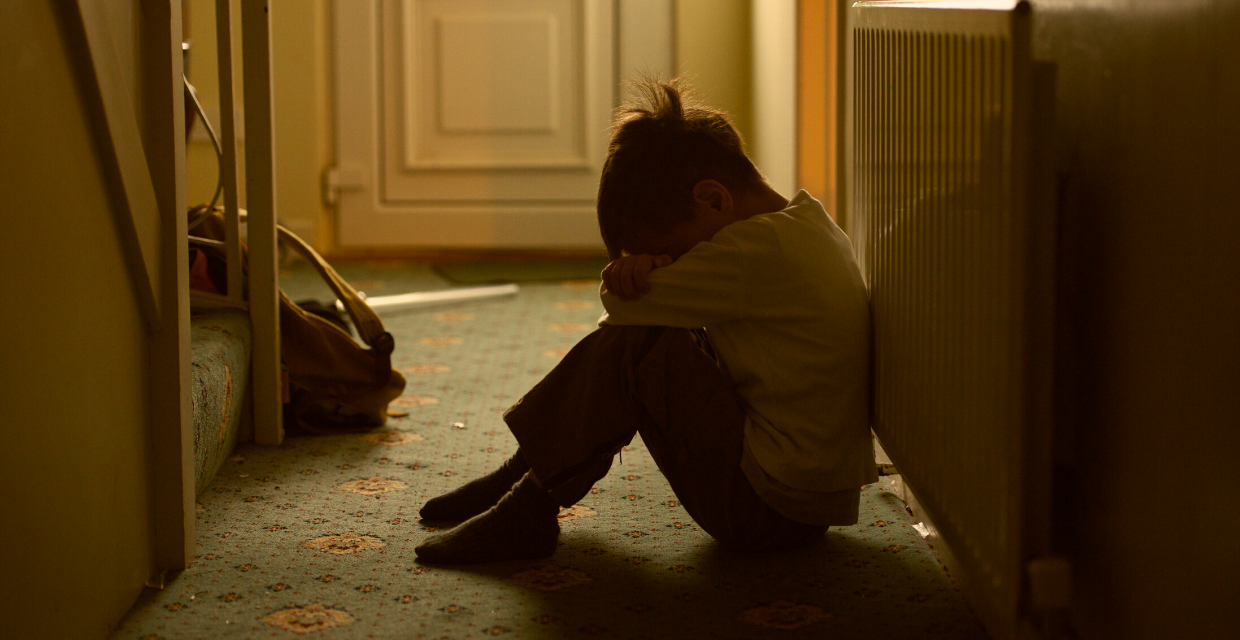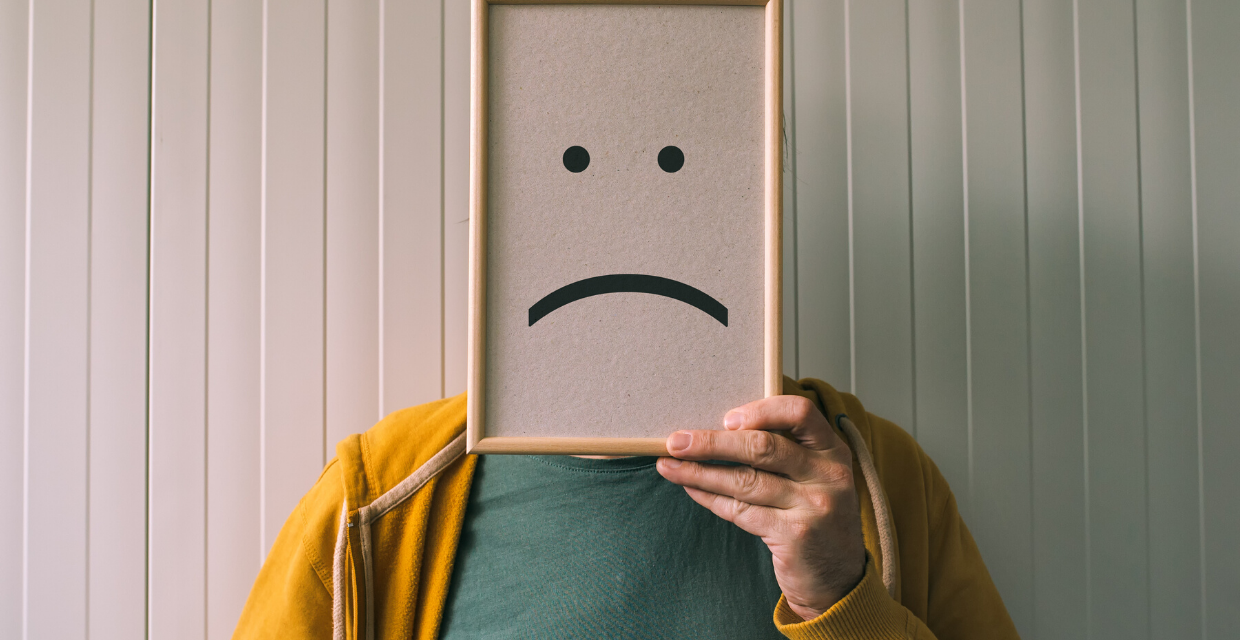Depression is a silent killer.
It is more than crying. It is more than slamming doors. It is more than a sudden breakdown. Sometimes, it is the fake smiles and laughs.
The dangerous thing about depression is that it sometimes goes undetected. Since it is an internal battle, it can be difficult to tell when someone is depressed or not. As parents, that might be one of the worst fears we have. Our kids can be smiling in front of us, but behind closed doors, their real emotions pour out.
Childhood depression has many telltale signs and it’s our responsibility as parents to recognise each one.
Understanding Childhood Depression

What many fail to realise is that depression is a real clinical disorder that can affect anyone, even kids. In its simplest definition, childhood depression is the sadness that persists and renders the child dysfunctional.
Depressed children will find it difficult to do simple tasks, such as showering, getting up from bed, interacting with others, studying, and the like for long periods of time.
What seems like a bad attitude may already be a sign of depression. Symptoms such as low energy or lack of interest may simply be mistaken for laziness.
Depression develops in many ways. Some include:
- Major depression
- Chronic depression or dysthymia
- Adjustment disorder with depressed mood
- Seasonal affective disorder
- Bipolar disorder
- Disruptive mood dysregulation disorder
“That’s a lot of terms to describe sadness,” you might be thinking now. That’s because emotions are complex.
Recognising the depth of our child’s emotions will help them get the necessary treatments. The stigma around depression only invalidates the experiences of those who need medical attention. If we go outside our preconceived notions of sadness, we can extend ourselves to help our children in the best way possible.
Signs And Symptoms To Watch Out For

If the following symptoms persist and interfere with your child’s daily lives for more than two weeks, then it should be a cause for concern:
- Loss of interest in things they liked before
- Tendency to isolate themselves
- Talking about dying or death (writing farewell letters, letting go of favorite things, etc.)
- Changes in sleeping patterns
- Aggression, hostility, irritability
- Significant changes in weight
- Low self-esteem (self-critical, lacks confidence, doubts abilities)
- Difficulty in concentrating
- Persistent feelings of guilt and inadequacy
- Persistent physical ailments such as headaches, stomach aches, etc.
- Suicidal thoughts
Take note that not all depressed children will exhibit these symptoms. Some may have varying ones at different times. Some may also seem functional in one day but won’t be in another. This only calls for the parents’ full attention on their children to properly assess their condition.
How Is Depression Diagnosed?

Once you suspect that your child has depression, you need to consult a professional immediately. First, there would be a medical evaluation of their mental and cognitive conditions. There will be cases where lab tests would be required in order to rule out other medical disorders.
The second part of the evaluation explores the psychiatric history of the child. This includes their family and social history in relation to mental illnesses. The child’s school environment will also be examined through interviews with the child and parent.
Lastly, the child will be interviewed. These may tackle different matters. Some may include observations of parent-child interactions, open-ended questions, and more detailed questions for older children.
Getting Help

Depression is not a lost cause. Emotions and behaviour are hard to manage, but it is still possible to treat. In fact, there are many proven ways to effectively treat depression in kids.
1. Therapy
There are various kinds of therapies available that cater to different manifestations of depression:
- Cognitive Behavioural Therapy (CBT): The best type of therapy for depressed children and adolescents. It will help them learn how feelings, thoughts, and behaviours are interconnected, and how to manage each one.
- Dialectical Behaviour Therapy (DBT): For those with severe depression. It is recommended for children and adults who find it difficult to manage extreme emotions and those who engage in risky behaviours such as self-harm.
- Interpersonal Psychotherapy (IT): Addresses how the child deals with their relationships and helps them form healthier ones.
2. Medication
When therapies won’t be effective in treating their depression, medication might be prescribed by the doctor.
It’s common for parents to worry about their child taking in medication. They feel that they may be “drugged” or it will alter their personality into someone they’re not.
However, the right dosage and medicine will target the symptoms of depression alone and help them feel better. Moreover, antidepressants are not addictive, so this is not a substance that will harm your child.
3. Parental Intervention
Of course, we can’t leave you out of the equation. In fact, you are the most important factor in their journey to recovery.
Here are some things you can do to help:
- Schedule an appointment with a pediatrician
- Spend more time with them
- Be open about your emotions
- Explain to them what depression is
- Keep your home as stress-free as possible
- Promote a healthy diet at home
- Encourage them to open up about their feelings
- Listen to them and validate their emotions
- Make sure they attend therapy
4. Hotlines In Case Of Emergencies

| Samaritans of Singapore (SOS) 24-Hour Hotline | 1800 221 4444 |
| Singapore Children’s Society Helpline | 1800 2744 788 |
| IMH Child Guidance Clinics 24-Hour Helpline | 6389 2222 |
| TOUCH Community Services Helpline | 1800 377 2252 |
| Singapore Association for Mental Health (SAMH) Helpline | 1800 283 7019 |
| Singapore Care Corner Mandarin Counselling Hotline | 1800 3535 800 |
Your priority as a parent should be the welfare of your child, be it physical or mental. There’s still a stigma around mental health. But when our children are affected, it’s time that we let go of our preconceived notions and help them.
In A Nutshell…
Our children’s emotions are just as valid as ours. When they feel something intense, it’s our responsibility to attend to it and help them manage it.
Childhood depression is one of the medical conditions that handicaps kids from performing mundane tasks. Fortunately, there are many telltale signs that we can watch out and prepare for.
It’s not the end of the road for our children. Let’s help them get back on their feet with our love and support!
Has your child experienced this condition before? Share your story with us in the comments section and help fellow parents deal with their own struggles at home!






